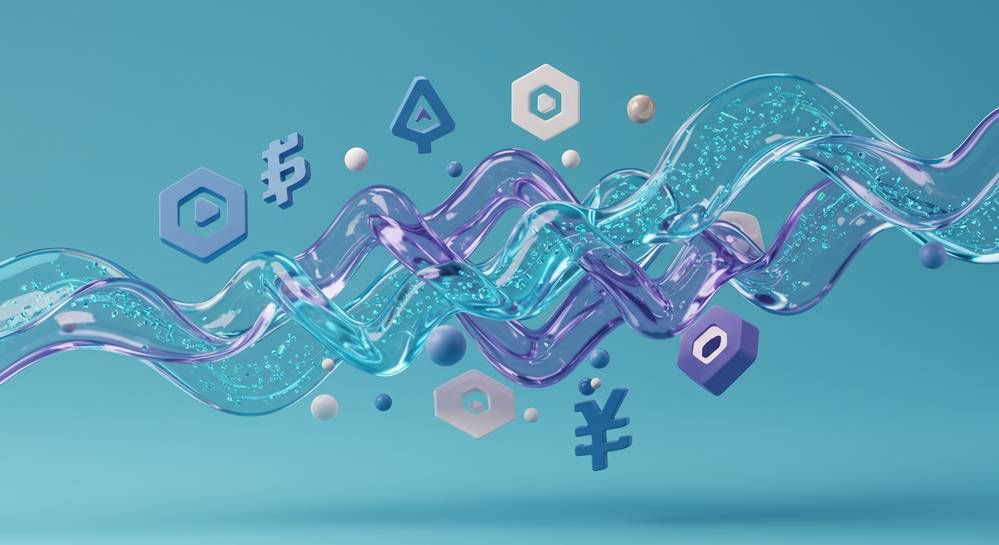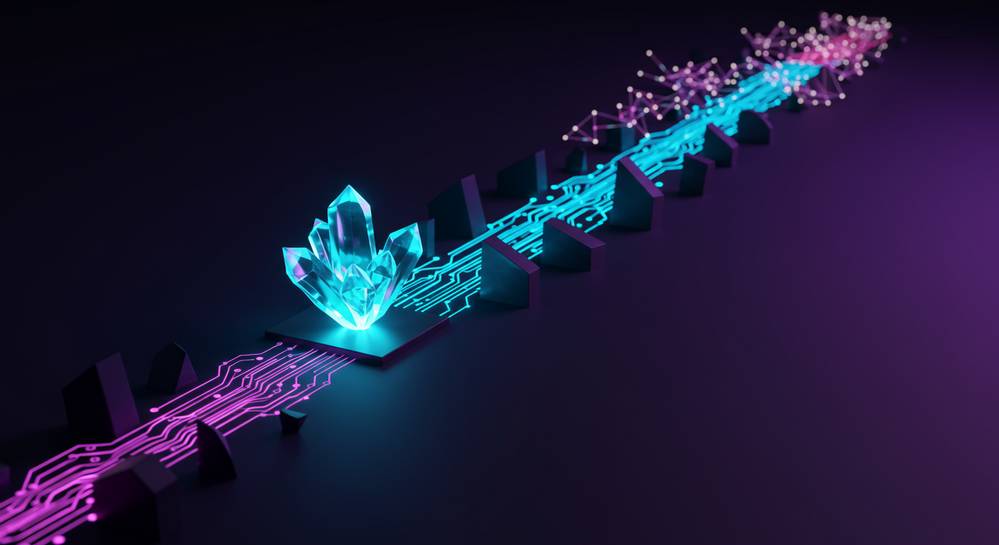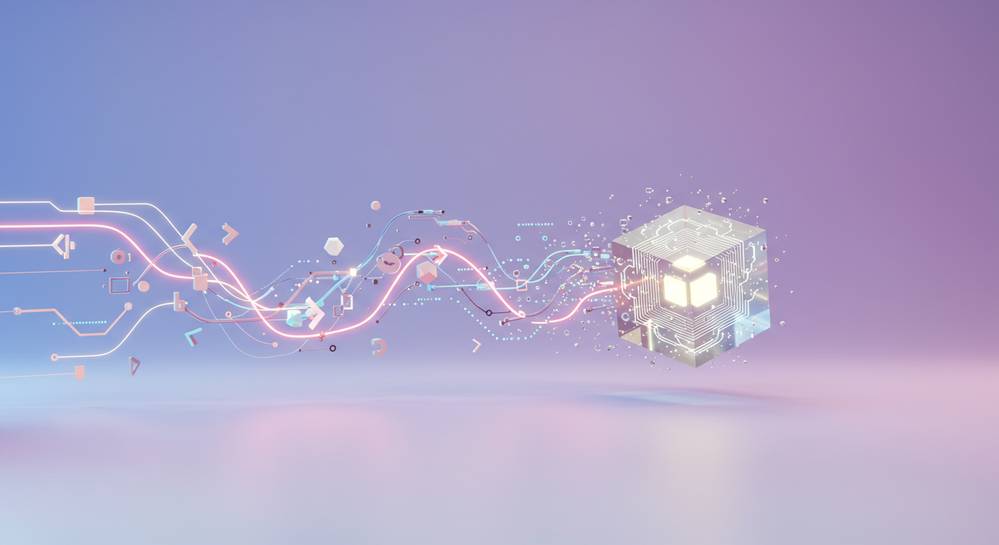Web3 Technology Unleashed: Top Real-World Applications Revolutionizing Industries
Picture a world where your online actions are yours alone, where every transaction, every login, and every ownership claim is secure. That’s the promise of Web3 technology, and it’s not just theory—it’s happening now. I’m going to pull back the curtain on the real-world use cases of Web3 technology that are shaking up traditional sectors. Think finance, where DeFi apps write new rules for money; or art, where NFTs redefine ownership. It’s all about giving power back to you — no middlemen, no hidden fees, just pure, unadulterated control. And it doesn’t stop there. From supply chains to healthcare, every industry stands on the brink of a blockchain revolution. Let’s dive into how this digital breakthrough is already setting new benchmarks.
Transforming Finance with Web3
Decentralized Finance Applications Making Waves
Have you heard about DeFi? It stands for decentralized finance. DeFi changes how we handle money. It takes power from big banks. It gives the power to people like you and me instead. With DeFi, we don’t need banks to save, borrow, or lend money. We use smart contracts on the blockchain. They are like robot bankers working 24/7.
The Surge of Tokenization in Asset Management
Now let’s talk tokenization. Imagine owning part of a painting or a building. Sounds cool, right? With tokenization, this is possible. We break down expensive things into tokens. One token can equal one share of the thing. Like tokens in a game. But it’s real life and real money. You can own, trade, or sell these tokens. Blockchain makes sure this is safe and fair.
Now, with the rise of tokenization in asset management, you could become part-owner of a real estate project or a piece of art with just a few clicks. Tokenization has opened the door for fractional ownership. This means more people can own parts of something – like real estate, without needing lots of money. It’s fairer and gives more people a chance to invest.
Then there’s supply chain transparency. Blockchain lets us track goods from start to finish. No secrets. No lies. Just clear info on where things come from. This helps us trust the stuff we buy more. Plus, it’s great for businesses and customers alike.
And we can’t forget about voting systems on the blockchain. Imagine voting from home with just your phone. No waiting in lines. Blockchain voting is also really hard to cheat. So, we can trust the results more.
In healthcare, blockchain helps keep patient info safe. It’s like a super-strong lock for personal health records. Only the right people can see them. This means you can rest easy knowing your health secrets are safe.
So, you see, Web3 is not just tech talk. It’s real stuff happening now. It’s changing how we manage our money, own things, keep track of goods, vote, and even keep our health info safe. All thanks to the power of blockchain. It’s pretty awesome, right?
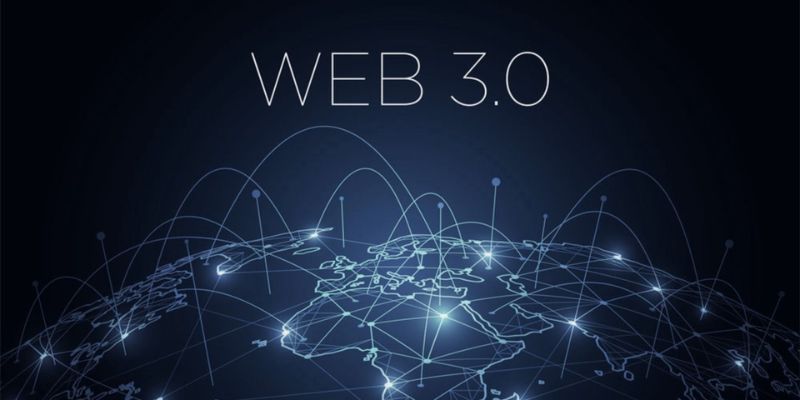
Innovating Entertainment and Media through Blockchain
Revolutionizing Gaming with Blockchain Platforms
Blockchain gaming platforms are a new world in play. Here, you can earn while you play. This idea is what we call play-to-earn models. They are changing how we think about games. Gamers can own their in-game items, thanks to blockchain. These items can be traded or sold, just like real things.
Blockchain makes it all safe and fair. Smart contracts make sure rules are followed. This means less cheating and more fun for everyone. These games are not just for fun, though. They can be a way to make money, too. Blockchain here is a game-changer, for real.
Non-Fungible Tokens: Remodeling the Art Industry
Now, let’s talk about art. Non-fungible tokens, or NFTs, are big news in this space. They let artists sell their work in a digital format. With NFTs, we can check who owns a piece of art. This digital ownership verification is done on blockchain. This is super cool because it stops fakes. It makes sure artists get credit for what they make.
NFTs in the art industry also change how we think about owning art. You can own a piece of digital art just like a painting on your wall. Even better, artists can earn money every time their art is sold. NFTs help make sure of that.
NFTs and blockchain gaming platforms are just two ways blockchain shakes things up in our world. They show us that playing games and enjoying art can be more than just hobbies. They can be part of how we earn and own things, all thanks to blockchain.
And guess what? This is just the start. Blockchain has more tricks up its sleeve. It’s going to keep making waves in entertainment and media, and I can’t wait to see what’s next!
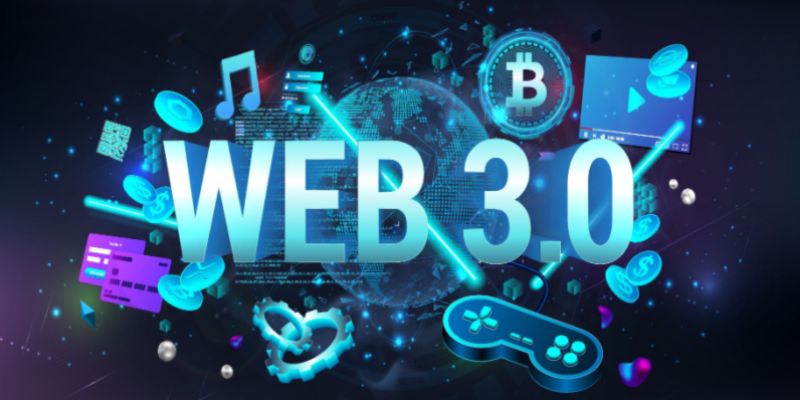
Enhancing Supply Chain and Governance with Web3
Achieving Complete Transparency in Supply Chains
Web3 is changing how we track goods from start to finish. For instance, supply chain transparency using blockchain lets us see every step a product takes. This means we can trust items are fresh, real, and fair. With blockchain, we’re sure that coffee from Africa is honest trade. We find this info with a quick scan on our phones. This scan shows the product’s journey, all clear and simple.
One key part of this is smart contracts in business. These are like deals that run themselves when conditions are met. So, if a farmer sends coffee to a store, the payment gets released at once. No delays. It makes trade smooth for everyone.
Blockchain helps stop fake goods, too. This is vital for things like medicine. Every pill can be traced back to where it was made. So, people get what they need and no one is tricked with bad stuff.
Decentralized Autonomous Organizations in Action
Now, let’s talk about DAOs, or decentralized autonomous organizations. These groups run without bosses. Instead, every member has a say. They vote on big choices. They use tokens like votes, and it’s all recorded on blockchain. This method is open and fair.
DAOs can cover lots of areas, from deciding on how to spend money to making new rules. With blockchain, every vote is safe and can’t be changed. So, people in a DAO feel strong and listened to. They are truly part of the group.
For example, folks could join a DAO that’s all about clean energy. They might vote on putting money into solar power for a town. Since all the votes are on blockchain, it’s easy to see the results. And since it’s a DAO, no one person can just do what they want. It’s all up to the group.
DAOs are also starting to shake up the way we own things. Real estate tokenization is part of this. Instead of one person owning a building, many people can own parts of it, like slices of a pie. They all vote on big choices like fixing it up or selling it. This means more people can be part of investing. It’s not just for the rich.
Web3 is not just another internet upgrade. It’s a new way to live and work together. It brings trust through openness. It lets us join groups and make choices without needing a middle man. With every scan and vote, we build a world that’s more for all of us. We’re just starting to see what’s possible. And it’s exciting to see where we will go next, with Web3 leading the way.
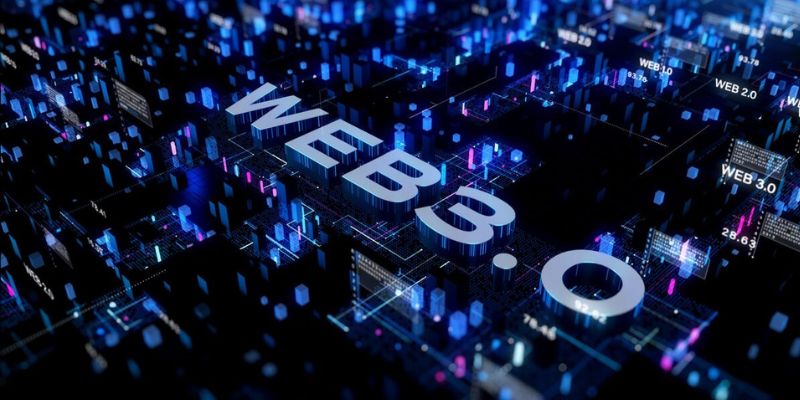
Advancing Healthcare and Identity Management with Blockchain
Securing Patient Data with Cutting-edge Solutions
Imagine your health info safe like hidden treasure. That’s what blockchain does. It keeps patient data secure. Doctors and others can see it only if you say yes. It’s like giving them a special key only when needed. How does this happen? Smart contracts help out. They are like rules that run by themselves when conditions are right. This means only the right people can peek at your health info.
Still wondering about smart contracts in healthcare? They are lines of code that live on the blockchain. They kick into action when certain things happen. Like, if you agree, your doctor gets to see your health records. This cuts down on mistakes and keeps your secrets safe. It also means your info zips around super fast when you need care.
Facilitating Self-Sovereign Identity in the Digital Age
Now, let’s chat about who you are online. Self-sovereign identity lets you own your digital ID. You control your info with Web3. You share bits of it, your choice, and only when needed. You might ask, “What is self-sovereign identity?” It’s simple. Instead of sites or companies, you call the shots for your own identity. No more relying on others to say who you are on the web. No more worrying about someone else “losing” your info or giving it away.
This identity is yours. You prove who you are without giving away too much. Blockchain makes this work. It’s like writing your name in wet cement. Once it dries, your mark stays there strong and clear. No one can mess with it. Your digital ID is like that on the blockchain. Solid and yours alone.
We’re reshaping times with such tech! It’s vital for keeping private stuff, well, private. This gives power back to you and me. We decide how our data and identities live in this digital world. And we’re just skimming the surface! Think of loans, jobs, even voting. They could all get better with blockchain. This is how trust gets built in the web of tomorrow. We’re making it happen, step by step.
We’ve covered a lot here, from shaking up finance with Web3 to changing how we play games and enjoy art. Web3’s powers don’t stop; they’re also making supply chains clear as glass and turning groups into boss-free orgs. And let’s not forget, your health info is safer and you’re in charge of your online you, thanks to blockchain.
As a pro in this field, I say keep your eyes on Web3. It’s not just tech talk; it’s the real deal, reshaping our world bit by bit. Trust in this, friends: blockchain is here to make things better, smarter, and way more you-centered. Stay tuned, because this is just the start!
Q&A :
What are some notable applications of Web3 in today’s digital landscape?
Web3 technology is pioneering a new digital landscape that promotes decentralization, transparency, and user empowerment. Notable applications of Web3 technology include decentralized finance (DeFi) platforms that enable financial transactions without traditional banks, non-fungible tokens (NFTs) which offer a way to prove ownership of digital assets, decentralized autonomous organizations (DAOs) which enable community-led project management, and decentralized applications (dApps) that run on blockchain networks.
How is Web3 being implemented in supply chain management?
Implementation of Web3 in supply chain management has revolutionized the industry by enhancing traceability and accountability. Smart contracts on blockchain platforms can automate agreements, while IoT devices can provide real-time data linked to these smart contracts. This leads to a more reliable and transparent process for tracking the journey of products, from manufacture to delivery, reducing fraud and improving efficiency.
Can Web3 technology be integrated into social media platforms?
Yes, Web3 can significantly transform the social media landscape by integrating peer-to-peer networking and blockchain technologies. This integration will empower users to own and control their data, create value through content without intermediary control, and potentially earn cryptocurrency through various engagement mechanisms. Decentralized social media platforms are already in development, aiming to address privacy concerns and provide better revenue models for content creators.
What are the implications of Web3 for online privacy and security?
Web3 technology emphasizes user privacy and security through decentralized networks that eliminate single points of failure and data monopolies. By leveraging encryption and blockchain, Web3 provides individuals with sovereignty over their data, mitigating the risk of mass data breaches and unauthorized data sharing prevalent in current web platforms. Furthermore, with the use of decentralized identifiers (DIDs), Web3 enables authentication without exposing personal identifiers, thereby enhancing both privacy and security online.
How does Web3 facilitate the creation of a decentralized internet?
Web3 facilitates the creation of a decentralized internet by using blockchain and peer-to-peer networking to ensure that no central entity has control over the web’s infrastructure. This approach enables decentralized hosting of websites and services, making them resistant to censorship and server failures. The integration of cryptocurrencies enables new monetization models, and smart contracts bring forth a trustless environment where transactions and agreements are automatically executed without intermediaries.

